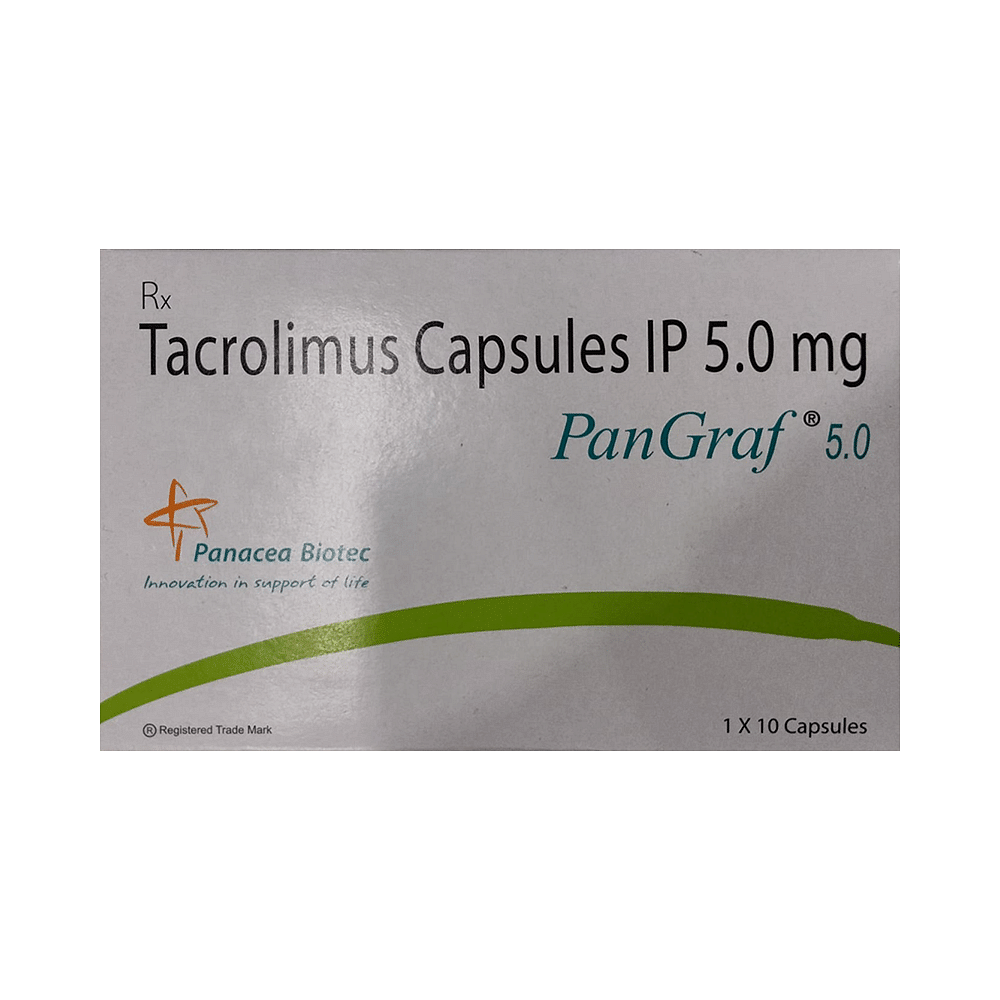
Olmis 5mg Capsule
Manufacturer
Torrent Pharmaceuticals Ltd
Salt Composition
Tacrolimus (5mg)
Key Information
Short Description
Olmis 5mg Capsule is used to prevent organ rejection in transplant patients by weakening the body's immune system.
Dosage Form
Capsule
Introduction
Olmis 5mg Capsule is an immunosuppressant used along with other medicines to prevent your body from rejecting a new organ (e.g., liver, kidney, or heart) after transplant. It works by suppressing your body's immune response following the transplant of an organ (e.g., liver, kidney, or heart). This helps your body to accept the new organ as if it were your own.
Directions for Use
Take this medicine in the dose and duration as advised by your doctor. Olmis 5mg Capsule is to be taken empty stomach.
Safety Information
Side Effects
No common side effects listed.
Alcohol Warning
It is unsafe to consume alcohol with Olmis 5mg Capsule.
Breastfeeding Warning
Olmis 5mg Capsule is probably unsafe to use during breastfeeding. Limited human data suggests that the drug may pass into the breastmilk and harm the baby.
Pregnancy Warning
Olmis 5mg Capsule may be unsafe to use during pregnancy. Although there are limited studies in humans, animal studies have shown harmful effects on the developing baby. Your doctor will weigh the benefits and any potential risks before prescribing it to you. Please consult your doctor.
Interacting Medicines
Rotavirus vaccine (live attenuated oral) Live Attenuated Varicella-Zoster Virus Measles Vaccine (Live) Rubella vaccine (Live)
How it works
Olmis 5mg Capsule is an immunosuppressant. It works by suppressing your body's immune response following the transplant of an organ (e.g., liver, kidney, or heart). This helps your body to accept the new organ as if it were your own.
Quick Tips
Olmis 5mg Capsule is used to prevent organ rejection in transplant patients. It may take 3 to 4 months for the medication to work. Keep taking it as prescribed. Your doctor may monitor your kidney function regularly. Drink 8 to 10 glasses of water per day to help with your kidney function. Do not stop taking Olmis 5mg Capsule without talking to your doctor first. Your doctor may get regular blood tests done to check the levels of blood cells in your blood. Inform your doctor if you experience unexplained bruising or bleeding, sore throat, mouth ulcers, fever, or general illness. Your doctor may monitor your kidney function regularly. Drink 8 to 10 glasses of water per day to help with your kidney function.
Related Medicines

Tacromus 5mg Capsule

Tacloran 5mg Capsule

Tacren 5mg Capsule

Takfa 5mg Capsule

Tacrotaj 5mg Capsule

Pangraf 5 Capsule

Tcoglob 5mg Capsule

Tacronic 5mg Capsule


